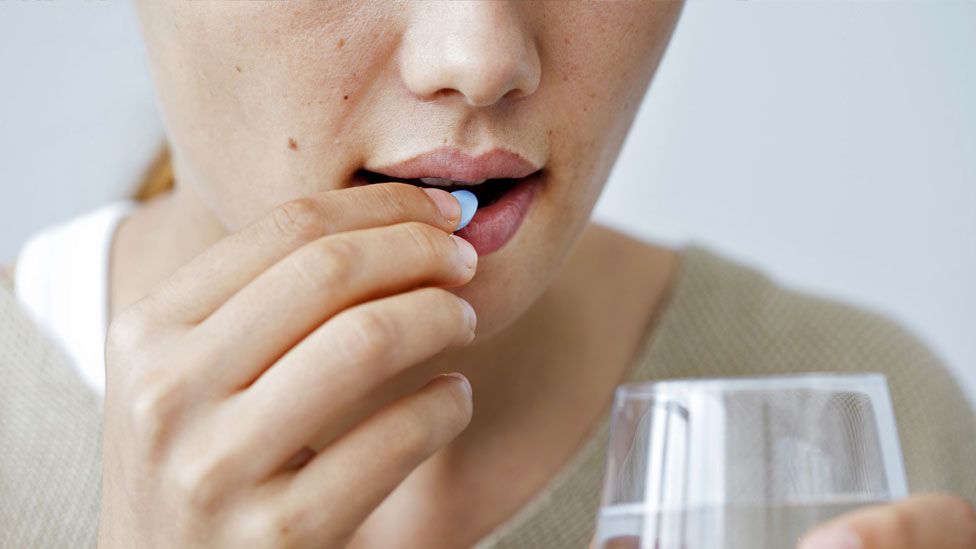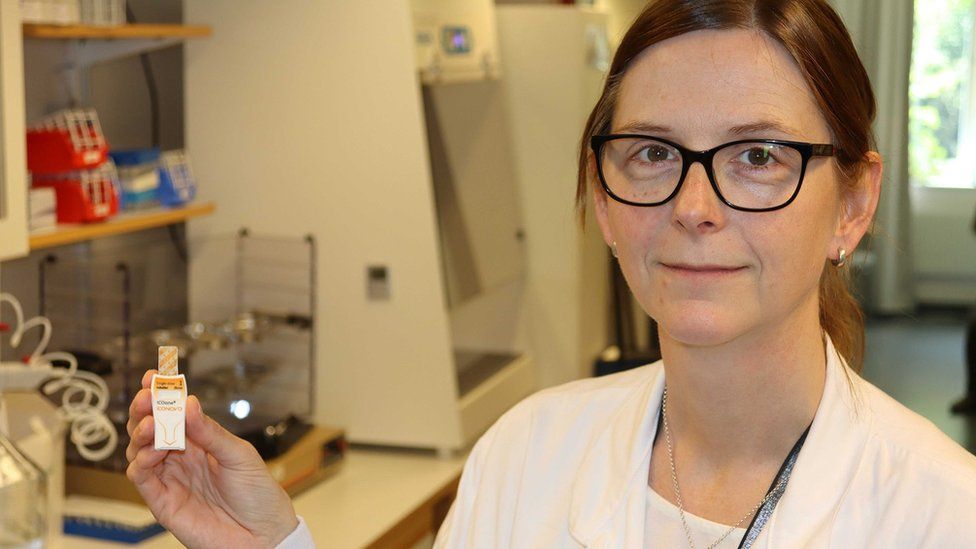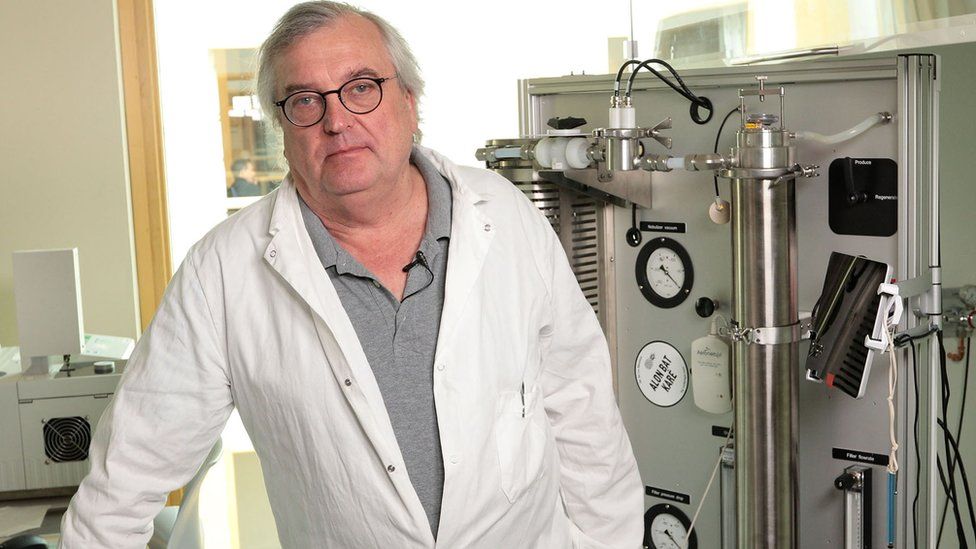Could Covid vaccine be taken as a pill?
By Maddy Savage
BBC News, Stockholm

Right now, protection against Covid-19 comes via an injection. But in future, those vaccines could come from inhalers or even pills.
In a white, airy laboratory in Medicon Village, one of southern Sweden’s largest science parks, chemist Ingemo Andersson holds up a thin, plastic inhaler, half the size of a matchbox.
Her team is hoping this tiny product could play a big role in the global fight against coronavirus allowing people to take powdered versions of future vaccines at home.
“It’s easy and it’s really cheap to produce,” says Johan Waborg, CEO of the firm, which usually makes inhalers for patients with asthma.
“You just remove a little plastic slip and then the vaccine inhaler is activated and you just put it in your mouth, take a deep breath and inhale.”

The company, Iconovo, is collaborating with an immunology research start-up in Stockholm, ISR, which has developed a dry-powder vaccine against Covid-19.
That’s a major contrast to the conditions needed to store the current commonly available coronavirus vaccines approved by the World Health Organization (WHO), which are all in liquid form.
They have to be kept in tough glass vials in temperatures as low as -70C, before being transferred to fridges, or they they lose effectiveness – known as the “cold chain”.
“The game-changer is that you could distribute the [powder] vaccine extremely easily without the cold chain, and it can be administered without the need for healthcare providers,” says ISR’s founder, Ola Winquist, a professor of immunology at the Karolinska Institute, one of Sweden’s leading medical universities.
Freeze-dried foods
The company is currently testing its vaccines on the Beta (South African) and Alpha (UK) variants of Covid-19.
It believes it could prove especially useful in speeding up vaccine rollouts in Africa where there are currently no home-grown vaccine manufacturers, and warmer climates and limited electricity supplies have led to major challenges when it comes to storing and delivering Covid-19 vaccines before they expire.
There is still some way to go before trials indicate the full potential of ISR’s air-dried vaccine, including whether it can offer the same level of protection as the current list of vaccines approved by the WHO.
So far, it has only been tested on mice, although ISR and Iconovo have raised enough funding to begin studies on humans within the next two months.

But there is already optimism within the medical community that if powdered vaccines like this one prove successful, they could revolutionise the global response to the coronavirus pandemic, as well as making it easier to store and distribute vaccines for other illnesses.
“It would really open up opportunities for hard-to-reach areas and maybe save us having people carrying cool boxes on bicycles and camels,” says Stefan Swartling Peterson, Unicef’s global health chief from 2016 to 2020, now professor of global transformation for health at Karolinska.
He compares the potential impact to that of freeze-dried foods, which have proved “great for going into all sorts of funny places which are out of electricity’s reach”, whether for use by medical personnel or simply adventurous campers.
While companies around the world are investigating powdered vaccines, Swartling Peterson points to another start-up with “promising technology”, just a 10-minute walk from Iconovo.
Ziccum is testing a technology designed to air-dry existing or future liquid vaccines in a way that doesn’t limit their effectiveness.
This could make it easier to set up so-called “fill and finish” facilities in developing countries, allowing them to complete the final stages of vaccine production on home soil.
The vaccine powder would be mixed with a sterile water solution just prior to immunisation, and then injected using vials and needles.
However, the technology “opens up for various other types of administration” from nasal sprays to pills, says its CEO Göran Conradsson.
“It requires a lot of research and development for that. But in principle, yes.”
‘Greener’ alternative
Janssen, which makes the single-dose Covid vaccine approved for use in the UK by the medicines regulator last month, is already working on a pilot project designed to analyse the Ziccum’s air-drying capabilities.
The pharmaceutical giant would not say if this was connected to coronavirus or other infectious diseases, but a spokesperson said the research was part of a deep focus on “exploring novel technology that has the potential to ease distribution, administration and compliance” of future vaccines.
Powder technologies could also help those who are afraid of needles, and offer a “greener” alternative to liquid vaccines, by cutting down on the electricity needed to power the fridges and freezers usually used to store vaccine vials.

And it could help global vaccine coverage.
“No-one’s safe until everyone is safe,” says Mr Conradsson. “You never know what’s going to happen if you [still] have the coronavirus going around somewhere in part of the world.”
“We have to be able to get vaccines to populations in all settings to tackle epidemics and pandemics globally,” agrees Ingrid Kromann, a spokesperson for the Coalition for Epidemic Preparedness Innovation (Cepi), a global non-profit organisation working to accelerate the development of vaccines.
She is cautious, saying powder-based vaccines are still at an early stage of development and there is “still much work to do”, for example to streamline and scale up the manufacturing process.
“But if it is successful, it could contribute to better access to vaccines, less wastage, and lower costs of vaccination programmes.”
Source: https://www.bbc.com/news/health-57553602
